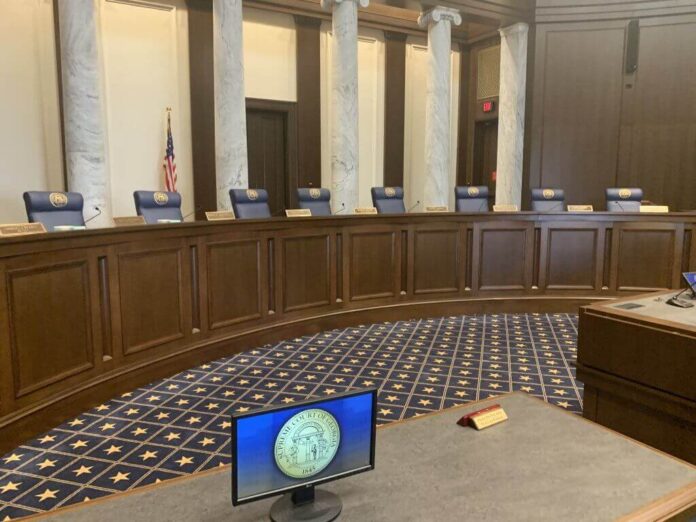
(Georgia Recorder) — A state Supreme Court’s decision reversing a lower court’s ruling that a private contractor was exempt from the Georgia Open Records Act is being hailed as a win for open government.
The court ruled unanimously Tuesday that a private contractor working for a public entity is still subject to the law and can be sent requests for public records they may possess.
At issue was whether a professor at the Georgia Institute of Technology who also does work for the college through his two companies is subject to the law and whether he should be considered a custodian of the public records in his possession.
A records request was submitted to the college and the private contractor in 2022 by a man, Ryan Milliron, who is seeking records involving the contractor’s work on behalf of the college for the Defense Advanced Research Projects Agency, which is a federal agency that develops emerging technologies for the military.
The state’s highest court, which heard oral arguments in June, ruled Tuesday that the Fulton County Superior Court and Georgia Court of Appeals wrongly sided against the records requestor. The case will be sent back to Fulton County Superior Court.
The court concluded in its ruling that “a request for public records related to a private contractor’s services to a public agency can be served upon non-agency custodians of the relevant public records — including the private contractor if he or she is the custodian of the records sought — and the Court of Appeals erred in concluding otherwise.”
Meredith C. Kincaid, an attorney with Decatur-based Cross Kincaid who represented Milliron, said her client was pleased with the ruling.
“The Supreme Court’s opinion thoughtfully reinforces and clarifies important principles underlying the Open Records Act,” Kincaid said in a statement Tuesday.
“Government accountability matters no less when the government uses private contractors for its work. We appreciate the Supreme Court’s attention to this case and look forward to continuing to pursue the public records at issue in the trial court.”
An attorney for the private contractor, Manos Antonakakis, did not respond to an email seeking comment Tuesday afternoon.
The previous decision had alarmed open government advocates.
The Georgia First Amendment Foundation, which weighed in on Milliron’s behalf, had argued that the previous ruling would have “serious and negative implications for the public’s ability to access open records in the state of Georgia,” the nonprofit advocacy group wrote in an amicus brief filed in April.
The lower court’s ruling would have created a loophole for a contractor who is also a public employee, shielding the public records in their possession from disclosure, the foundation argued.
Sarah Brewerton-Palmer, an attorney for the foundation, called Tuesday’s opinion a “welcome confirmation” of the state’s commitment to open access to public records.
“The Court’s ruling, which allows members of the public to seek open records directly from government contractors, is crucial for protecting meaningful records access in Georgia,” Brewerton-Palmer said in a statement.
“Government contractors are often the only ones who have copies of the records they create during their work. Forcing the public to go through a government agency to get those records would, in many cases, mean that the records are never actually provided. To perform meaningful oversight of government contractors, journalists, and citizens must be able to see the public records in their possession, and the Georgia Supreme Court’s ruling makes sure they can do so.”







